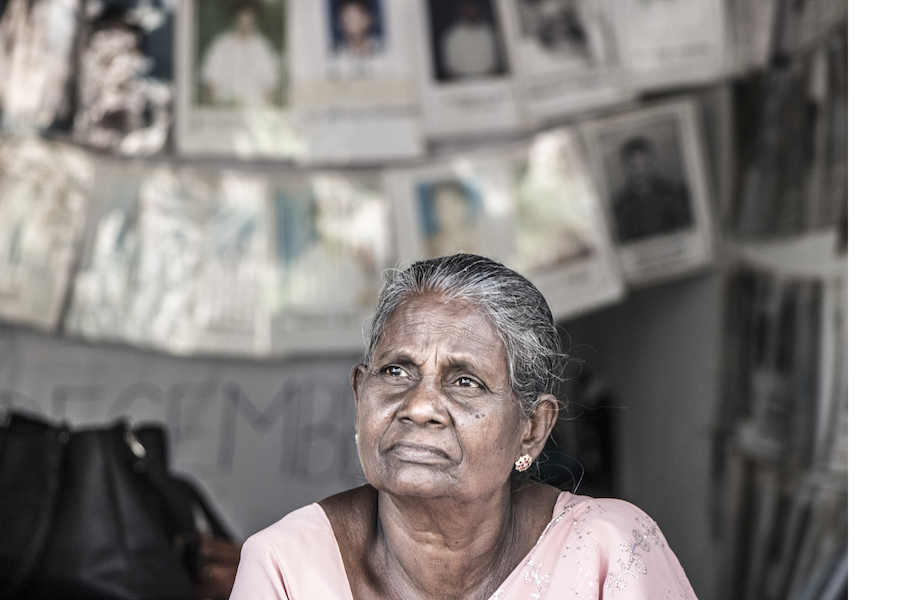
Photo of a family member of the disappeared
Writing in Just Security, Daniela Gavshon, Director of the Truth and Accountability program at the Public Interest Advocacy Centre (PIAC) highlights the findings of their latest report, “Tides of Violence”, a project aims to compile a record of wartime abuses and to the enter them onto a detailed conflict map.
In her statement she urged the UN Human Rights Council, in advance of their 46th session, to “pass a resolution that calls for truth and accountability”; warning that a failure to do so, as the high commissioner recently stated, would risk further violations.
Commenting on the purpose of the report Gavshon maintains that it is not only a “useful reminder for foreign state officials of the gravity of what happened during the conflict” but also “a reminder for Sri Lankan civil society that their suffering and their past has not been forgotten”.
She further laid out three primary reasons for the report noting that;
- “seeing the reported violations laid out, their geographical extent and the multiple types of violations makes a compelling case for the need for truth and accountability processes to be pursued”.
- “mapping the violations and identifying the patterns serves as an initial roadmap for people working on transitional justice initiatives”.
- “Organising and preserving reports and articles provides a valuable historical record for the future”.
The report is based on open-source documentation and highlights atrocities committed by all forces. With respects to the government’s shelling of civilian areas during the final stages of the war she notes that;
“shelling in the final stages was so relentless it is almost impossible to differentiate one attack from the next”.
She further notes that in the same period
"killings of individuals and disappearances happened at an alarmingly high rate, sometimes almost daily or weekly".
In her statement, she highlighted Sri Lanka’s failure to investigate these abuses noting that numbers have had “questionable legitimacy” and that judicial proceedings have either not progressed or yielded questionable results. To date, there have been no systematic war-related prosecutions, and many cases remain disputed, including high-profile ones. Recently Sri Lanka's Presidential Commission on "Political Victimisation" has called for the pardoning of 25 former military officers, including those involved in the notorious Trinco 11 case, as well as a number of high profile human rights abuses.
We need your support
Sri Lanka is one of the most dangerous places in the world to be a journalist. Tamil journalists are particularly at threat, with at least 41 media workers known to have been killed by the Sri Lankan state or its paramilitaries during and after the armed conflict.
Despite the risks, our team on the ground remain committed to providing detailed and accurate reporting of developments in the Tamil homeland, across the island and around the world, as well as providing expert analysis and insight from the Tamil point of view
We need your support in keeping our journalism going. Support our work today.
For more ways to donate visit https://donate.tamilguardian.com.

